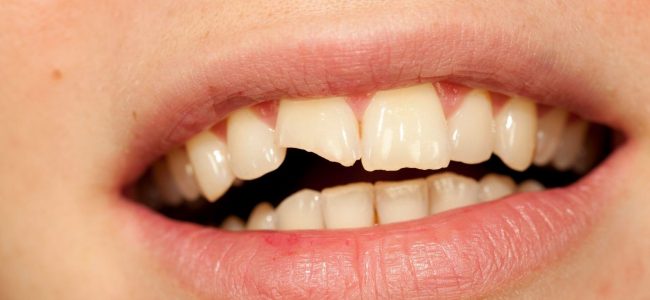What Happens When You Leave a Cracked Tooth Untreated?
The sooner a cracked tooth is treated by a dentist, the better. Over time, cracked teeth can lead to bigger dental problems.
Bacteria can get into the cracked tooth and spread. This can lead to an abscess or a pocket of bacteria that can cause infection. This infection, if unnoticed, can spread to other parts of the body and become a serious health concern. Moreover, a broken tooth can often cause nerve damage and may eventually lead to a root canal.
Symptoms of a Broken Tooth
The enamel of the tooth has no nerves, so you may not realize when the enamel is wearing off.
A broken tooth can range from a significant crack of the tooth that leaves the pulp and dentin exposed to just a small chip. A chip may not cause any pain, whereas some larger cracks most certainly can. Bacteria can get into these cracks and cause discomfort, discoloration, or sensitivity to hot or cold temperatures. Other signs of a cracked tooth that may require dental work can include swollen gums, pain when chewing, pain that comes and goes, pressure sensitivity, or a general feeling of discomfort in the area.
Should I Leave a Broken Tooth Alone?
A broken tooth shouldn’t be left untreated. Even if a broken tooth doesn’t hurt or isn’t bothering you, it can put you at risk for other more serious issues if not corrected quickly. One of the most bothersome risks of leaving a broken tooth alone is having food get stuck inside, which can cause acute infections.
Teeth that are at risk of infection could lead to abscesses, which are fluid-filled sacs of plaque, pus, and bacteria. These abscesses are painful and harmful to the body as infection can get into the bloodstream. Leaving a broken tooth untreated can also potentially cause more risk of other surrounding teeth becoming infected as well, impacting overall health.
Complete, immediate repairs are always best. The longer you wait, the more in-depth treatment could be. Solutions for immediate care could include crowning or capping the damaged part, while treatment for more serious infection could lead to pulling teeth.
What to Do When a Tooth Breaks Off
Typically, a minorly chipped tooth won’t cause any problems on its own. Still, your dentist can fill and smooth the tooth to keep your tongue or lip from catching on the rough edge. Heavily fractured or broken teeth will require more attention.
A broken tooth could be caused by a cavity, and tooth cavities can cause infection of the gum or pulp. Root canal treatment may be required in this instance.
For cracked or chipped teeth, root canal treatment may not be the best option. The inflamed or infected pulp will be removed, and the space will be cleaned and sealed. If caught in time, the dentist may be able to fill in the crack or chip with specialized tooth cement to prevent future pain or infection. The dentist will roughen the tooth’s surface so the cement can bond to the tooth. Tooth-colored resin is then added in. The bonding material hardens under ultraviolet light to repair the crack in the tooth.
With a broken tooth, unless the issue is obvious, it’s possible that you may not experience any pain or problems right away, but that doesn’t mean it should be neglected. No matter how mild, it is important to contact your dentist right away. Visits to the dentist are essential to oral health. Infections can and will develop quickly, so be sure to receive trusted care right away for a cracked tooth.
